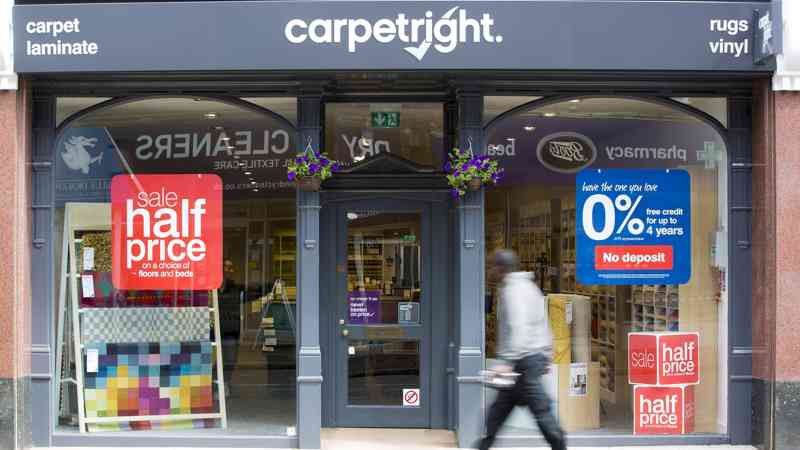Carpetright is put up for sale
Carpetright has put itself up for sale in a move which could lead to hundreds of store closures and job losses.
The floorings retailer, which trades from about 300 stores and has more than 3,000 employees, has appointed PwC to launch a formal sale process as it struggles amid a slowdown in demand and increased competition.
No formal bids have yet been made. Sources have told The Times that a sale process is likely to be completed through some form of restructuring, such as a pre-pack administration or company voluntary arrangement, which could leave customers, suppliers, sub-contractors and landlords out of pocket. Suppliers that work with Carpetright include Westex, Ulster, Brintons and Kahrs.
The appointment of the ‘big four’ accountant PwC comes after the retailer drafted in Teneo, the restructuring specialist, to explore cost-saving measures.
Kevin Barrett, Carpetright’s chief executive, told staff that he expected the sale process to “progress quickly as all parties focus on achieving a positive solution for the business and implementing the turnaround plan.”
Carpetright is one of the UK’s largest flooring retailers but has been troubled recently as consumers shift from carpets to hard-flooring. It has also struggled amid the shift from bricks and mortar shops to online retail.
Industry sources said intense competition from rivals such as Tapi had not helped. Tapi was founded by Martin Harris, whose father Lord Harris of Peckham founded Carpetright, and has opened dozens of stores on Carpetright’s doorstep. Martin Harris has left Tapi, but Lord Harris and Charlie Harris both continue to hold senior positions within the company.
Carpetright faced a fresh squeeze on its finances in April after a cyberattack left it unable to trade across its stores for almost a week. The chain was targeted by hackers at its head office in Purfleet, Essex, who sent malware to gain unauthorised access.
Sources said annual revenues had dropped to about £200 million, compared to £372.6 million in the 14 months to January 1, 2022 and £493.2 million in 2020.
Carpetright was founded as a single shop in east London in 1988 by Philip Harris — later Lord Harris — who stepped down as chairman in 2014.
It delisted from the London Stock Exchange in 2019, when it was bought by Meditor — a British hedge fund headed by Talal Shakerchi, the former Old Mutual banker and poker player — which had taken on almost 30 per cent of the company’s shares and more than £40 million of its debts the year before.
The retailer was forced to turn to a company voluntary arrangement, a form of restructuring, in 2018 to exit underperforming shops and reduce rents.
It has struggled to get credit insurance after its cover was cut during the CVA process. Trade credit insurance protects suppliers against the risk of a retailer going bust between the point an order is delivered and payment received. The removal of cover can prompt suppliers to demand payment upfront, squeezing a retailer’s cashflow.
Carpetright’s struggles mark another low for Britain’s high street and its battle for survival. Hundreds of stores have shuttered in the past year with the collapse of The Body Shop, Wilko and Paperchase.






